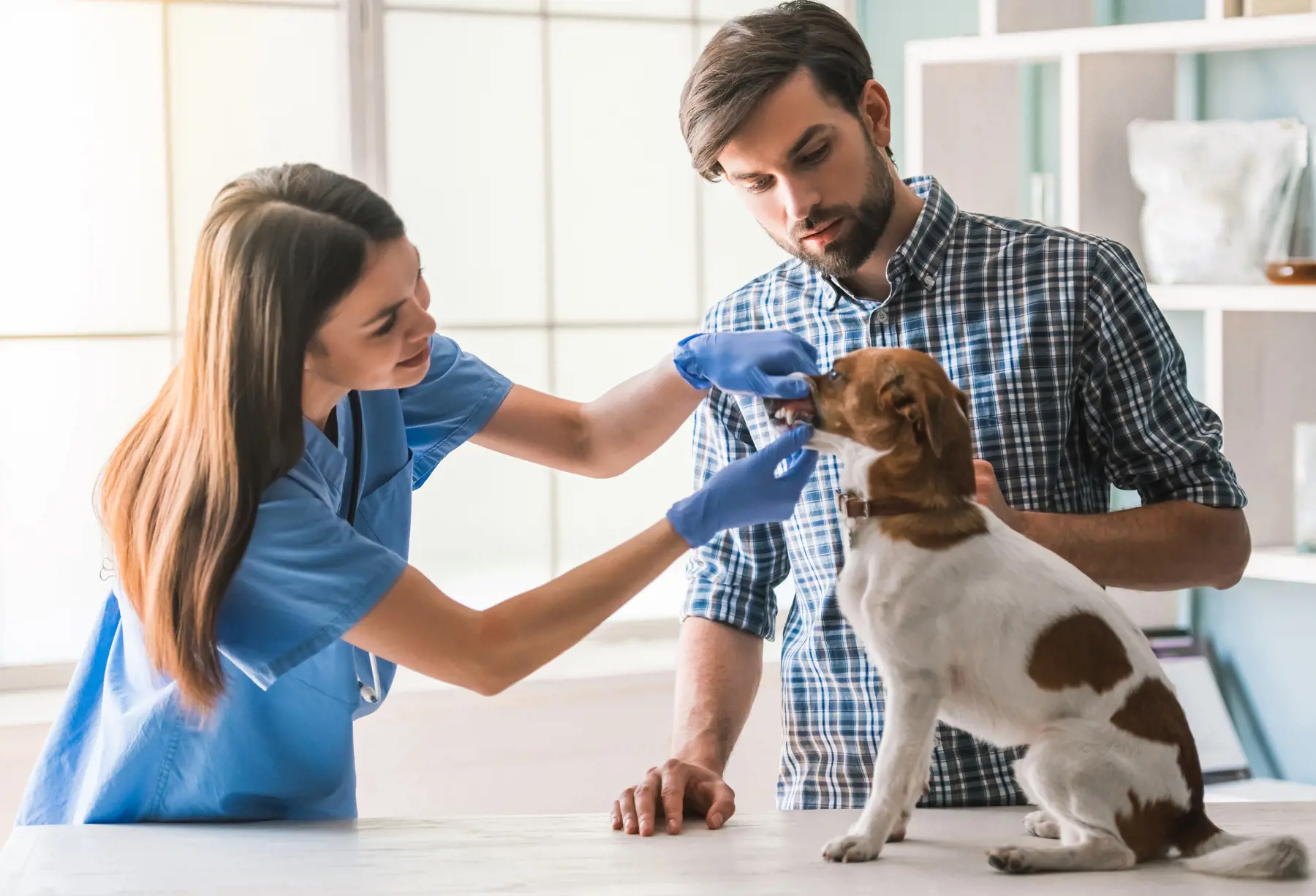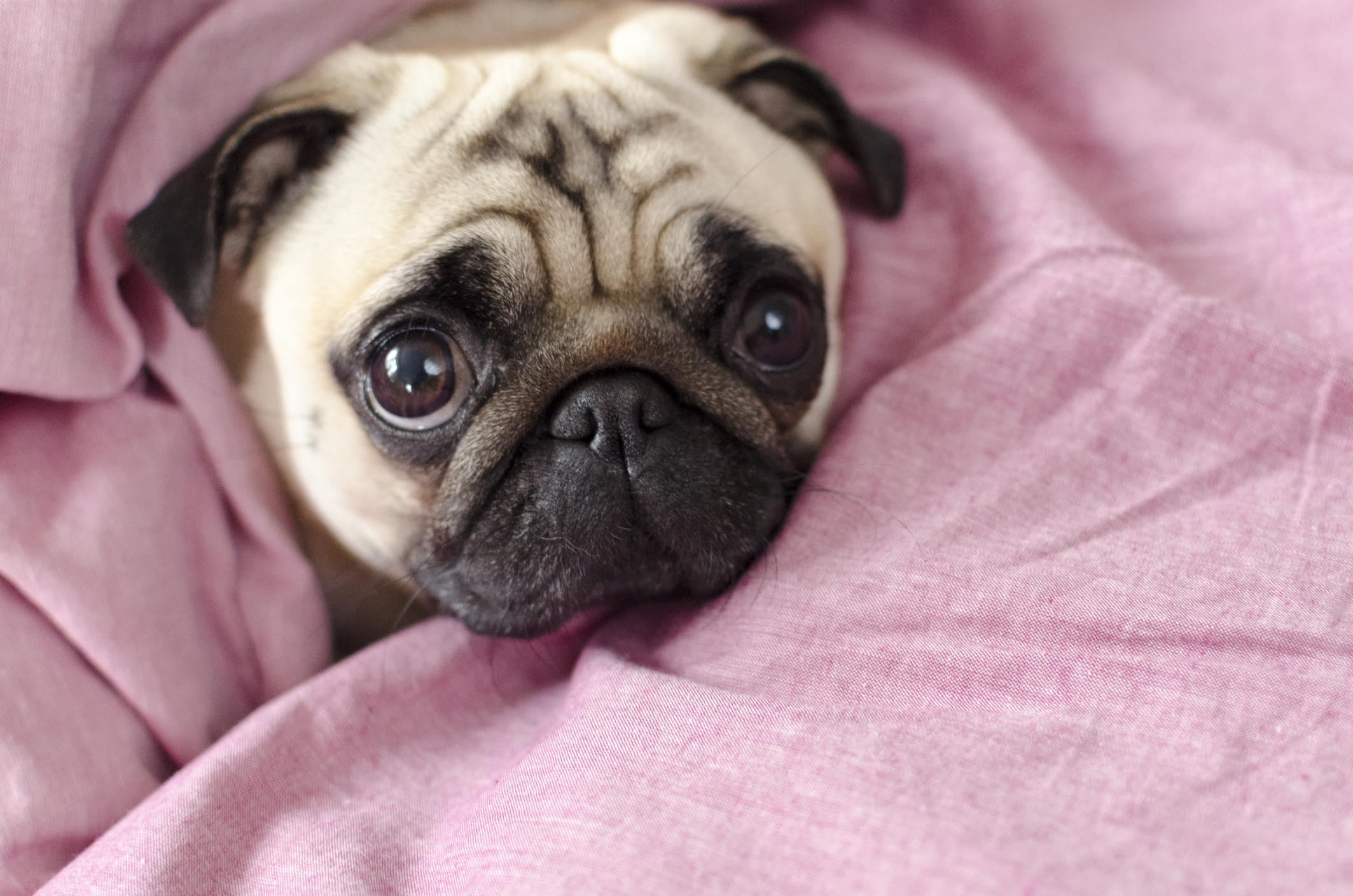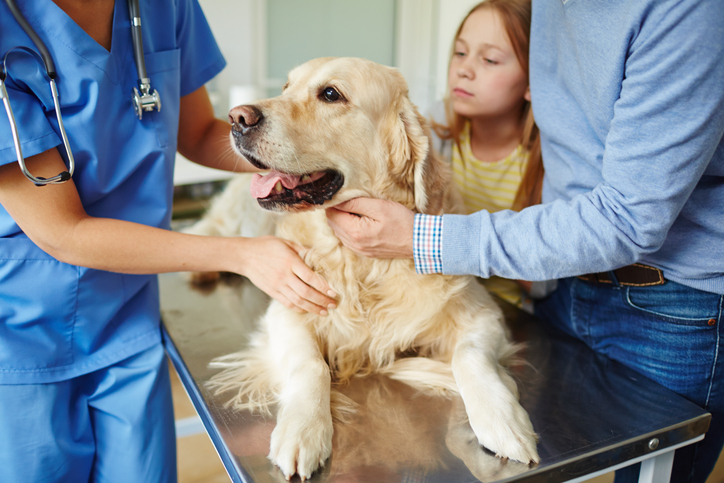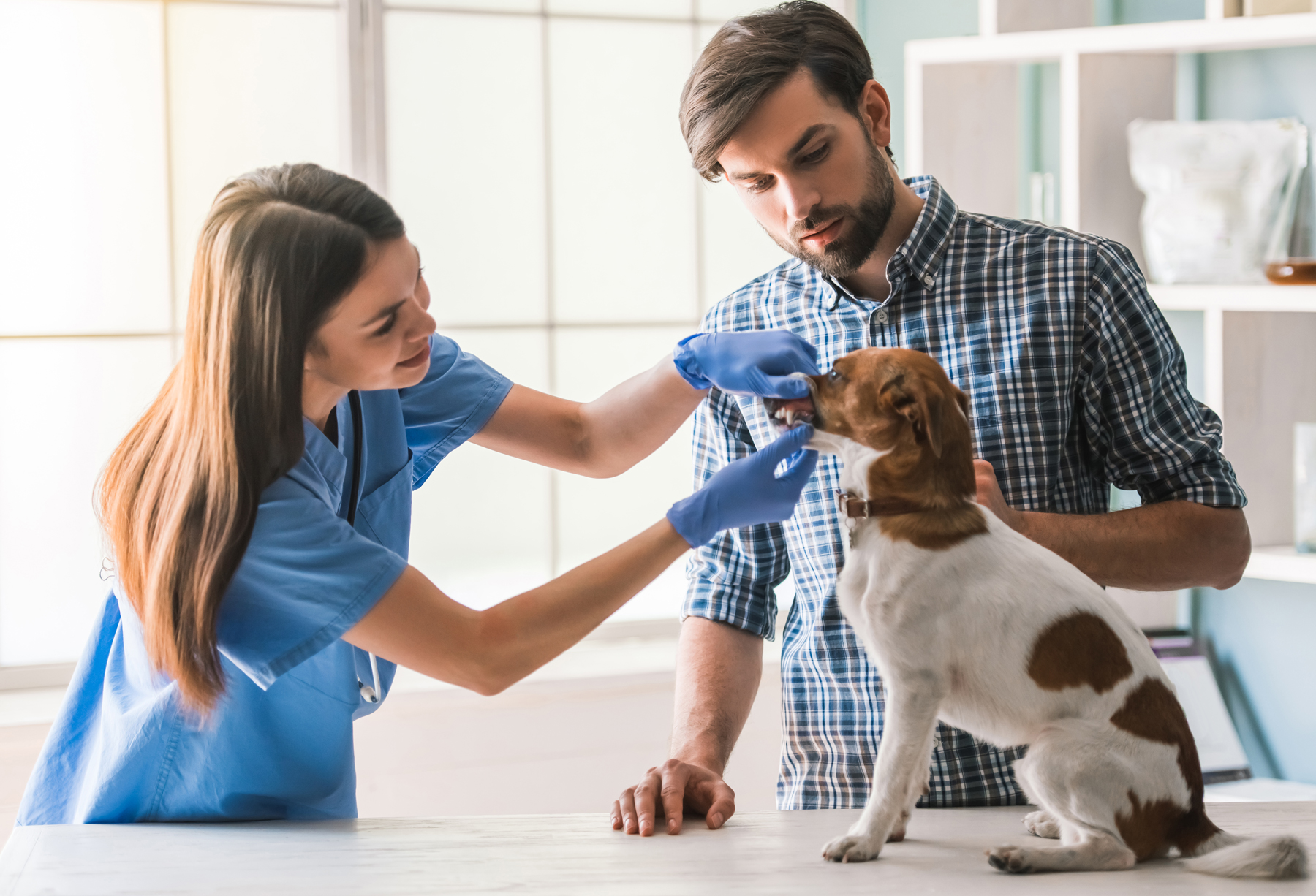What to do if your cat or dog has been poisoned?
23rd September, 2019

Do you share your home with a cat or dog? Perhaps you’re thinking of buying a pedigree puppy or kitten, or adopting a rescue cat or dog from the local shelter?
One of the (many) joys of life as a pet owner is spending time getting to know your new furry friend.
You’ll soon build a special bond with them as you discover their favourite place to snooze, which foods they love or how they like to be stroked.
Noticing a change in your pet’s behaviour can be scary. But it can be all too easy to label it as ‘one of those things’, telling yourself ‘it will soon pass’.
If you think your pet is acting differently than usual, don’t rule out the possibility they might have been poisoned. If they have, it’s essential that you act quickly to ensure they receive the treatment they need.
Most pets find themselves getting into mischief from time to time. Cats are curious creatures and dogs love to sniff out interesting new scents.
Sometimes your pet’s inquisitive nature can land them in trouble, so it’s important you arrange a pet insurance policy.
How will I know if my cat or dog has been poisoned?
Signs of poisoning vary, depending on the animal and what type of poison they have been exposed to. Some of the most common symptoms include:
- Diarrhoea and/or vomiting
- Shaking, staggering and/or seizures
- Breathing difficulties, including coughing or sneezing
- Skin irritation/scratching
- Loss of appetite
- Liver and kidney problems – signs can include increased drinking, frequent urination and loss of appetite

What should I do if I think my cat or dog has been poisoned?
Remove them and any other pets from the potential source of poison. After that, contact your vet as a matter of urgency or call the 24-hour Animal Poison Line. If you have a pet insurance policy with Purely Pets, you’ll have access to our 24-hour Vet Helpline.
This free service is open 24/7, 365 days of the year and offers you somewhere to ask any query you might have about your pet’s health.
Give as much information as possible – for example, the suspected poison, how the animal came to be poisoned and the amount they may have consumed.
Not many poisons cause a fatal reaction if they are treated promptly, so it’s vital you speak to a qualified animal professional immediately. Don’t try to make your pet vomit, unless instructed to do so by your vet.
If you notice something potentially poisonous on your pet’s fur or paws, try to stop them from grooming if you can. Wash them with warm water and mild shampoo, then wrap them up in a towel to dry them off and regulate their temperature.
If your vet says they need to examine your pet, remember to take the item you think they’ve been poisoned with and its packaging if you have it. This will help the vet to decide on the best course of treatment.
How can I prevent my pet from being poisoned?
Assess your home in the same way you would for a baby or toddler. This will ensure it’s pet-proof. Many common sources of poison are found in the home and garden, including:
Medication:
Make sure this is out of reach in a place where your pet cannot access it. And never give your cat or dog medication that’s meant for humans (such as aspirin, paracetamol, contraceptive pills, laxatives and antidepressants).
These medications are highly toxic to cats and dogs – even just one tablet could cause severe illness or death. When your pet is feeling under the weather, always phone your vet or the Purely Pets Vet Helpline for advice.
Pest killers:
Trying to rid your home or garden of pests such as rats, fleas or slugs?
-
Rat poison
Be mindful that many rodenticides are toxic to cats and dogs. This includes direct contact or eating a poisoned mouse. How long does it take for a dog to be affected by rat poison? Many rat poisons are made with anticoagulants, which cause a delay in blood clotting, leading to internal or external bleeding. It can take several days for the delay in blood clotting to happen, so you may not see any signs for quite a few days after your pet has eaten rat poison (or a poisoned rat). Look out for signs including unexplained bruising, blood in your pet’s stool or urine, bleeding gums, nose bleeds and bringing up blood when coughing or vomiting. It’s best to avoid using rat poison altogether if you have pets, but if you have no other option, do your research to find out which ones are safe to use near your cat or dog.
-
Flea treatments
It’s best to buy flea treatments directly from the vet. That way, you’ll know they’re effective and safe. Always follow the instructions on the packet carefully, especially if you decide to use a shop-bought treatment. Some flea treatments used to treat dogs contain permethrin, which can cause a life-threatening reaction in cats. Never apply a flea treatment meant for canines on your cat. If you have both a dog and a cat, avoid using permethrin products on your dog - your cat can be affected if they rub up against a pup that has just been treated.
-
Slug poison
Many of these contain metaldehyde, which can cause a fatal reaction in cats and dogs. If you’re using slug pellets in the garden, be sure to use a non-toxic version or cover treated areas with chicken wire.
Chocolate:
Are you a chocoholic? Don’t be tempted to share your sweet treats with your cat or dog.
At Easter and Christmas, make sure any chocolatey treats are kept somewhere your pet can’t reach them – in 2017, 62% of vets ‘saw at least one case of chocolate poisoning’ over the Easter holidays.
Chocolate contains methylxanthines, which can give your cat an upset tummy, high temperature, heart problems, muscle tremors and seizures.
One of these methylxanthines is theobromine, which can be highly toxic to your pooch. Dark chocolate contains higher levels of theobromine than milk and white versions.
If your dog helps themselves to your box of chocolates, it’s best to get in touch with your vet immediately for advice. Tell them the weight of your dog, what type of chocolate they have eaten and how much.

Grapes, sultanas, currants and raisins:
Can a single grape kill a dog? It’s possible since any amount of these foods could be toxic to your dog or cat.
It doesn’t make any difference if they are ‘raw’ or have been baked or cooked, so make sure your pet isn’t munching on leftover mince pies or Christmas cake during the festive season.
If you think they might have eaten something they shouldn’t have, contact your vet without delay. Kidney failure can occur a few days after initial consumption, so it’s important to act fast.
Cleaning products:
Did you know many household cleaning products (including bleach, laundry liquids, furniture polish, cleaning fluids and disinfectants) are poisonous to cats and dogs?
No, it’s not an excuse to slack off from your cleaning routine – just ensure your pet is out of the room while you’re doing it.
Once you’ve cleaned, make sure all surfaces and floors are dry before allowing your pet to come back into the room.
This will prevent them from walking on contaminated surfaces and then ingesting a poisonous substance while grooming.
Alternatively, why not invest in some eco-friendly cleaning products that are safe to use around pets?
Antifreeze containing ethylene glycol:
Antifreeze tastes sweet to cats (and dogs), so many pets are drawn to it. But just a tiny amount of ethylene glycol can cause kidney failure or even death.
Once ingested, it’s absorbed quickly and attacks the nervous system, lungs, kidneys and heart. Look out for symptoms like twitching, lethargy, being sick, increased thirst, unstable movements, seizures, panting and collapsing.
Make sure you clean up any spillages of antifreeze near your home straight away. Luckily, many companies now make their products without ethylene glycol. And some have added a bitter taste to help discourage animals from drinking it.
Lilies, plants and other flowers:
Most of us like to brighten up our homes with a bunch of fresh flowers. But if you have a cat, don’t have lilies in the house. Even just a light dusting of pollen from a lily is enough to cause a reaction, so it really isn’t worth the risk to your feline friend. Green-fingered? Avoid adding these plants and flowers to your garden if you have a pet. You should also avoid using weed and insect killers.
Algae:
Do you have a pond in your garden? Or does your dog love going swimming in lakes and rivers? Watch out for blue-green algae, a green/brown scum on the water’s surface. It can be very harmful to dogs if they drink the water or lick their fur after taking a swim. If your dog goes swimming outside, give them a wash with mild-shampoo afterwards. If you think they may have ingested any of this toxic algae, take them to the vet immediately.
Onions:
Sharing your cottage pie, lasagne or chilli with your feline friend or canine companion is a bad idea – anything containing onion, shallots, garlic or spring onion could damage their red blood cells and lead to anaemia. They might have an upset tummy, too.
How long does it take for a dog to be poisoned?
This will depend on several factors, including the type of poison and size of the dog. Sometimes, the effects can be seen almost immediately, other times they could take a few days to show.
If you think your dog has been poisoned, never take the ‘watch and wait’ approach – speak to your vet for advice. It’s always better to be safe than sorry.

Can cats get food poisoning?
Sort of. In cats and dogs, ‘food poisoning’ is a term used to describe illnesses that occur after eating ‘bad foods’. Your pet’s ancestors were accustomed to eating raw meats, so they’re usually not as sensitive to food poisoning as people.
But if the meat is infected with bacteria such as salmonella, listeria or E. coli, it can make them sick.
This is particularly dangerous for young puppies and kittens who haven’t had the chance to build up their immune systems.
You should also bear in mind that they can pass on germs to you too, especially if they give you a big kiss straight after eating the raw meat.
What do I do if my dog ate something bad?
Given the chance, most dogs love to rifle through the rubbish bin for tasty morsels leftover from your dinner. But if they swallow something they’re not used to eating, it might give them an upset stomach.
They’ll probably suffer from diarrhoea and/or vomiting and feel sorry for themselves, but if they’re able to keep water down then it’s usually not serious.
Try feeding them bland foods like rice, plain cooked chicken or cooked ground turkey for a day or two until the symptoms subside.
Keep an eye on them over the next few days and if you see blood in their stool, they’re unable to keep water down or you’re worried, call your vet.
Cats are usually much fussier than dogs, but if yours is a fan of lapping up leftovers, the same advice applies. If your cat suffers from chronic vomiting, see your vet for advice. Some cats are prone to bouts of vomiting with no underlying cause, but it can indicate a more serious health problem.
Protect your pet with pet insurance
When you welcome a pet into your home, they’ll quickly become part of the family and you’ll want to do everything you can to look after them.
But with so many potential risks, sometimes accidents do happen. Vet bills can be expensive, so protect your pet (and your bank balance) with a pet insurance policy from Purely Pets.
As well as the 24-hour vet helpline, Purely Pets can offer up to £15,000 of vet fee cover so you can choose the level of protection that’s right for you and your pet.
Our dedicated, UK-based pet insurance team will help make the process of arranging your pet insurance policy easy.
Contact us today to get a quote.
Helpful Pages
Recent Posts
Pet Insurance Quote
- 98% claims paid *
- Claims paid directly to vets
- 24/7 vet video consultations
- Interest free monthly payments




